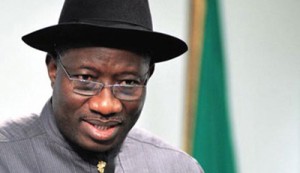 One of the last bills to be assented to by former President Goodluck Jonathan was the much-awaited Tobacco Control Bill. Signed just barely 24 hours to his last day in office, the Act is the formal domestication of the World Health Organisation’s Framework Convention on Tobacco Control 2003, which Nigeria signed in 2004 and ratified in 2005.The Tobacco Control Act provides the enabling legislation that will be the foundation of the nexus between democracy, public health and economy.
One of the last bills to be assented to by former President Goodluck Jonathan was the much-awaited Tobacco Control Bill. Signed just barely 24 hours to his last day in office, the Act is the formal domestication of the World Health Organisation’s Framework Convention on Tobacco Control 2003, which Nigeria signed in 2004 and ratified in 2005.The Tobacco Control Act provides the enabling legislation that will be the foundation of the nexus between democracy, public health and economy.
It also provides the basis for setting up the National Tobacco Control Committee, which will oversee the effective implementation of the tobacco regulation. The Act will regulate the production, manufacture, sales, labelling, advertising, promotion and sponsorship of tobacco products in Nigeria.
The core demand reduction provisions in the WHO FCTC contained in Articles 6-14 is the implementation of price and tax measures to reduce the demand for tobacco. An attempt to enforce the demand side of the FCTC provision will in an ideal circumstance – assuming tax administration systems are functioning optimally and relevant security measure are adequate to control smuggling – boost government revenue. This is a highly desirable outcome especially as the nation considers viable revenue alternatives to boost its coffers.
However, it is very evident that it is how the President Muhammadu Buhari-led administration effectively deals with the supply side of the core provisions that will really determine the effect the legislation is going to have in the short and long terms. Curbing illicit trade in tobacco remains a serious problem for governments on two fronts: Revenue loss and public health. Because smuggled brands evade tax, government loses much-needed revenue. In addition, by evading tax, they are able to pass their products into the market at far cheaper costs, ensuring they remain attractive to a larger section of the population who have limited income and fuelling consumption of these smuggled brands which are mostly produced under un-supervised conditions which increase health risks.
On the supply side therefore, the legislation is supposed to actively create and enforce laws against illicit trade in tobacco products as well as sales to and by minors who constitute a frightening statistic. According to the World Health Organisation data on Nigeria, as of December 31, 2012, approximately 18 per cent of teenagers between the ages of 13 and 15 have smoked a cigarette before. Such vulnerable groups can be protected by introduction of stiffer laws, having more effective enforcement actions and prosecution of offenders. The sale of tobacco products to minors is clearly prohibited by the National Tobacco Control Act. The law clearly states in Part II Section 3 (1) that, “No person below the age of eighteen years (18 years) shall sell or be sold tobacco or tobacco products,” and prescribes both pecuniary and jail time punishments for offenders.
A key way the Act intends to address this is through restrictions on how cigarettes are to be sold i.e a ban on single sticks sales which are easier and more affordable for minors to access and which will not carry prescribed formats of health warnings. The Act in Part II Section 4 (7-8) clearly declares it an “offence for any person carrying on business to sell cigarettes to any person other than in pre-packed quantities” of the “sealed and unbroken wrap or package in which the cigarettes were supplied for the purpose of retail sale by the manufacturer or importer.”
What has yet to be seen and which will be highly recommended is for the National Tobacco Control Committee to liaise with law enforcement agencies and consider the setting up an inter-agency task force comprising personnel from the Customs, Nigeria Police, the Economic and Financial Crimes Commission and even the Nigeria Security and Civil Defence Corps.
This can draw its mandate from Article 15, Section 6 of the FCTC, which compels parties to, “…as appropriate and in accordance with national law, promote co-operation between national agencies, as well as relevant regional and international intergovernmental organisations as it relates to investigations, prosecutions and proceedings, with a view to eliminating illicit trade in tobacco products. Special emphasis shall be placed on cooperation at regional and sub-regional levels to combat illicit trade of tobacco.”
This task force will be the interface between the various Nigerian law enforcement agencies, NATOCC and the law enforcement agencies of other neighbouring countries from where smuggled tobacco products are freighted into the Nigerian market. Without such a practical “boots on the ground” approach, the activities of cross border traffickers and traders in illicit tobacco products will only continue to rise without any increase in taxes, thereby depriving the government of the financial and public health successes.
A well-coordinated specific task force will be a very effective approach to fight against the growing illicit trade in the tobacco Industry. If NATOCC expects the diverse agencies to somehow re-calibrate their operations to have the required specific focus on tackling the menace, it will find itself grappling with enforcement…and with little or no success to show for it.
Proper enforcement that encompasses both the wholesale and the retail channels of the smuggled tobacco products will create the desired effect to reduce illicit trade. Increased monitoring at border posts notorious for being used as entry points by smugglers as well as an efficient task force that ensures all the stipulations contained in the Act are enforced by retail vendors within the nation’s borders can be the solution.
PUNCH
END

Be the first to comment